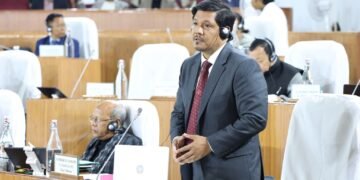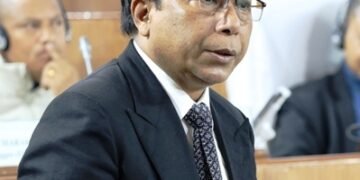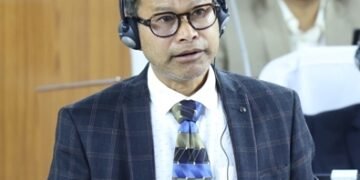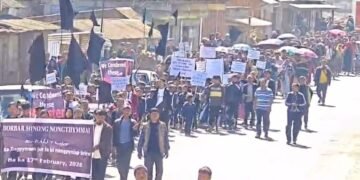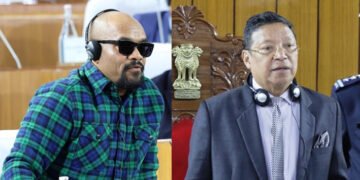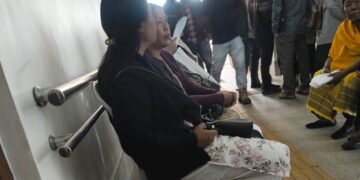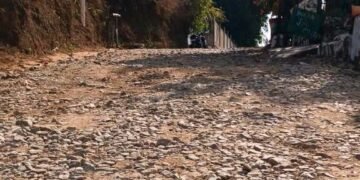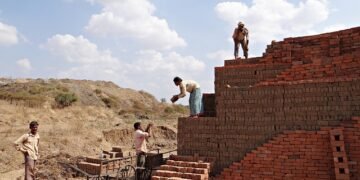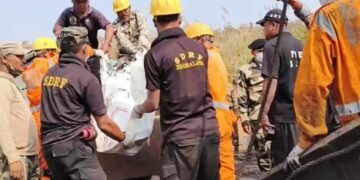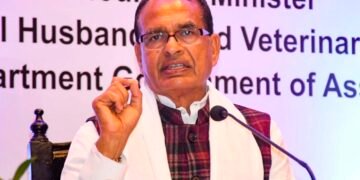A consultation on the protection of indigenous peoples’ lands and human rights has called on the central and state governments to abandon plans for big dam projects that will disrupt the lives of the local populations in their catchment areas.
The consultation was organised by Manipur’s Centre for Research and Advocacy in collaboration with Tripura’s Borok Peoples Human Rights Organisation, Sikkim’s Affected Citizens of Teesta and Civil Society Women’s Organisation of Meghalaya. It was held in Imphal on March 4-5.
CSWO president Agnes Kharshiing represented the Meghalaya group and said that extensive mining in Meghalaya has caused massive environmental destruction and a huge impact on people. Mining policies have also been framed without the people’s input, she added, and mining does not benefit the people but only the elite and community leaders who raise the issues of sustainability and other impacts of mining are attacked.
Jiten Yumnam, secretary of the CRA, shared that there is increased targeting of the land, rivers, forest and natural resources across the North East for dam building, energy projects, extractive industries, false climate change solutions with increased financing of international financial institutions and undermining indigenous peoples rights.
Gyatso Lepcha of the Affected Citizens of Teesta, shared that indigenous peoples’ land, water and rivers are sacred. Sikkim already experienced disaster and social impacts due to large dams. Dams entail building multiple infrastructures, roads and high voltage transmission and distribution lines that added to the disaster potential and social impacts. Corporate bodies while benefiting from dam building remain unaccountable for the violations.
Robin Moran, an environmentalist from Assam, said that Dehing Patkai National Park has been a source of livelihood of indigenous communities but mining concessions and oil exploration have been pursued inside the park without the consultation and consent of the indigenous peoples. Pollution due to coal mining has caused diseases of the heart, lungs, cancer and skin, he added.
Niranta Gohain, another environmentalist from Assam, said that the Baghjan oil spill in Assam in 2020 affected wetlands and community livelihood sources and land rights in Dibru Saikhowa National Park but Oil India Limited continues to fail to rehabilitate and compensate for the damages.
Bhanu Tatak of Dibang Resistance in Arunachal Pradesh said that the proposed 2880 MW Dibang Hydroelectric project and 3097 MW Etalin Hydroelectric project will destroy forests and the fragile biodiversity of Arunachal Pradesh. Emergency laws like the Armed Forces Special Powers Act 1958 and National Security Act 1980 are applied to promote unsustainable energy projects and to create fear within affected indigenous peoples, she added.
Anthony Debbarma, of the Borok Peoples Human Rights Organisation, said that several agreements were signed with the government to push for oil exploration and creation of oil pipelines in Tripura without recognising the rights and consent of indigenous communities, whose leaders face targetted attacks and arbitrary arrest for defending their land.
The participants resolved to ask the central government to recognise the indigenous people’s self-determined rights over land and resources in the North East. They also called on the Centre to revoke the Teesta IV hydroelectric project in Sikkim, Diban and Etalin dams in Arunachal, Umngot dam in Meghalaya and Tipaimukh, Pabram and Irang dams in Manipur.
They also demanded that the government first seek the people’s consent before permitting mining and oil exploration in the North East and compensate victims of the Baghjan oil spill.
Participants also rejected the government’s desire to promote palm oil cultivation in the region, calling it dangerous to the forest, water resources and biodiversity of the North East, while also worsening climate change.
Other demands included stopping forced eviction of indigenous communities for development projects and end of harassment of activists, compensation for victims of the Maranging landslide of 2022, implementation of a mechanism to ensure that corporations are accountable for violations of human rights, repeal of AFSPA, Unlawful Activities Act, National Security Act, etc and to implement the United Nations’ Declaration on the Rights of Indigenous Peoples 2007 and recommendations of all UN human rights bodies in all development processes affecting their land.


